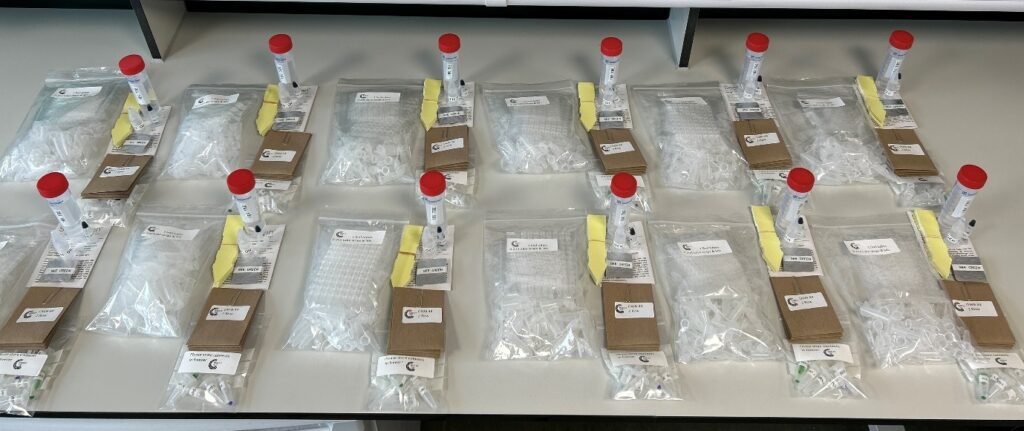The International Barley Hub (IBH), based at The James Hutton Institute, is bringing cutting-edge plant science into classrooms with the launch of the Barley iTAG programme. For the first time, 13 schools across the UK will receive special experimental packs designed to give pupils aged 15 to 18 hands-on experience with genetics.
The IBH promotes excellence in barley science and collaboration across the scientific, industrial and commercial sectors, with the goal of generating new discoveries and translating them into wider economic, social and commercial benefits. Through their pioneering research, IBH scientists aim to improve the resilience and sustainability of barley crop production and mitigate the impacts of climate and environmental change.
The IBH is committed to the training and development of the next generation of researchers and has an outreach programme to inform and increase enthusiasm for plant sciences and the importance of barley science to agriculture and the food and drink industries.
The iTAG (Inheritance of Traits and Genes) programme was originally developed at Iowa State University and has already inspired thousands of students across the US and Europe. The UK rollout builds on the success of the Royal Society-funded Daffodil DNA Project, which the IBH also delivered, using existing equipment to make advanced genetics more accessible to schools.

Malcolm Macaulay, barley molecular geneticist at the Hutton, said, “The Barley iTAG project helps students uncover how DNA shapes the traits we see in living things.
“Using a unique population of barley plants, pupils will be able to grow their own samples, compare visible differences, and then use lab techniques such as DNA extraction, polymerase chain reaction (PCR), a method used to amplify copies of specific DNA sequences rapidly to enable detailed study, and gel electrophoresis, a laboratory technique used to separate DNA based on its size and charge, to link traits back to genes.”
Jon Hale, a biology teacher at Bromsgrove School and creator of the popular Daffodil DNA project, said, “Patterns of inheritance can feel really abstract when taught through human disorders alone. The Barley iTAG project makes genetics tangible—students get to see and test the biology for themselves, linking traits to technology and real lab work.”
By combining plant biology, lab experiments, and real-world applications in farming and food, Barley iTAG aims to spark curiosity and encourage more young people to continue their journey into science.
- First image shows Zeo barley
- Second image shows the kits going out to schools
- The schools taking part in the iTAG programme are
- Morrison’s Academy, Crieff
- Bromsgrove School, Bromsgrove
- Webster’s High School, Kirriemuir
- St Mary’s Music School, Edinburgh
- St Margaret’s School for Girls, Aberdeen
- Nairn Academy, Nairn
- Morgan Academy, Dundee
- Means Academy, Laurencekirk
- The Royal Masonic School for Girls, Rickmansworth, London
- Cheam High School, Cheam, London
- Westray Junior High School, Orkney
- Cockermouth School, Cockermouth
- Luton Sixth Form College, Luton
